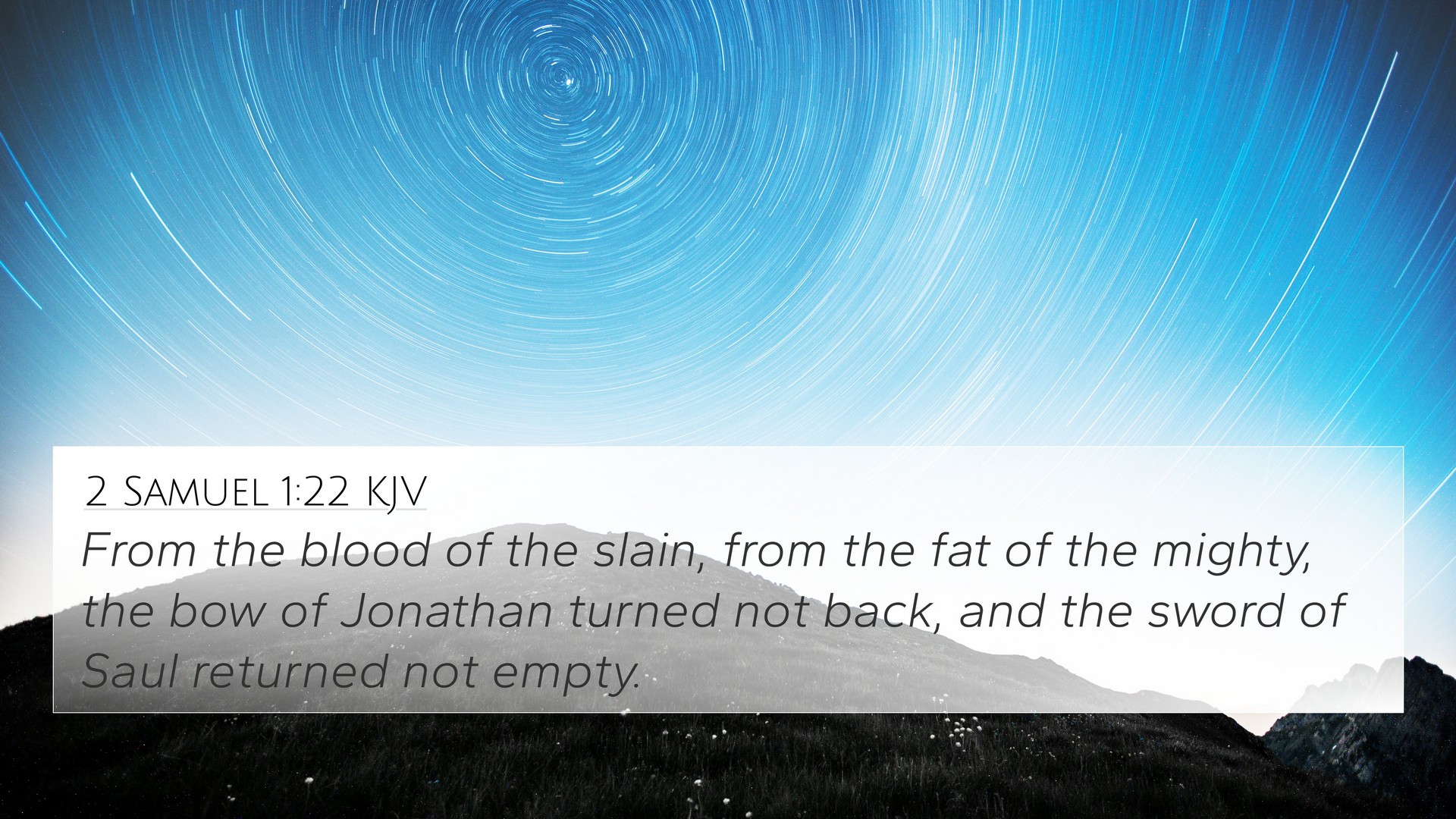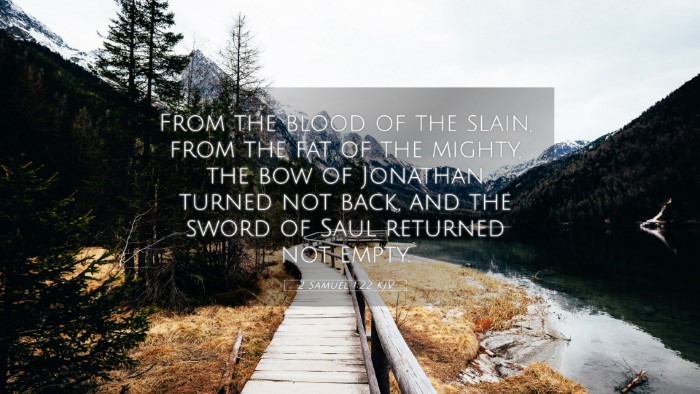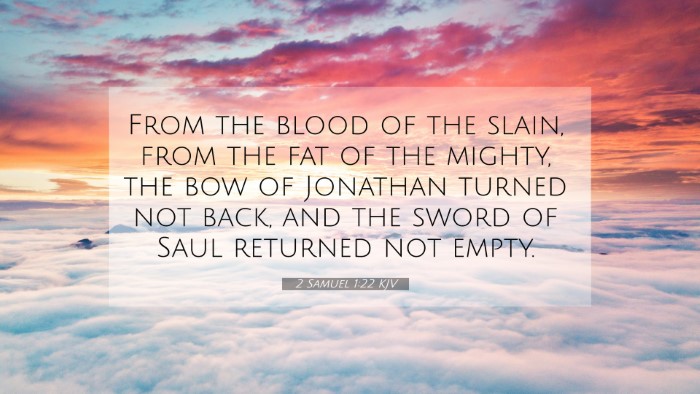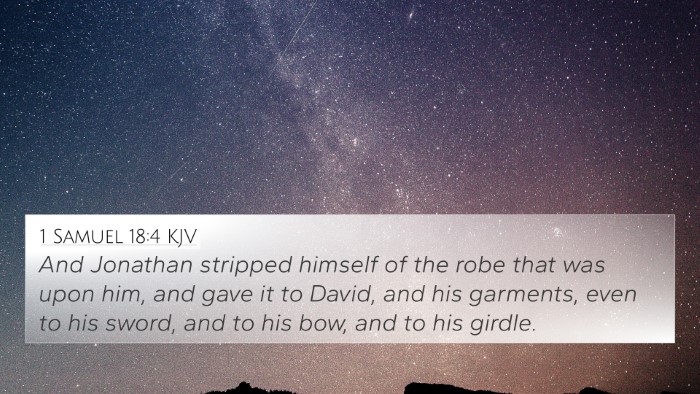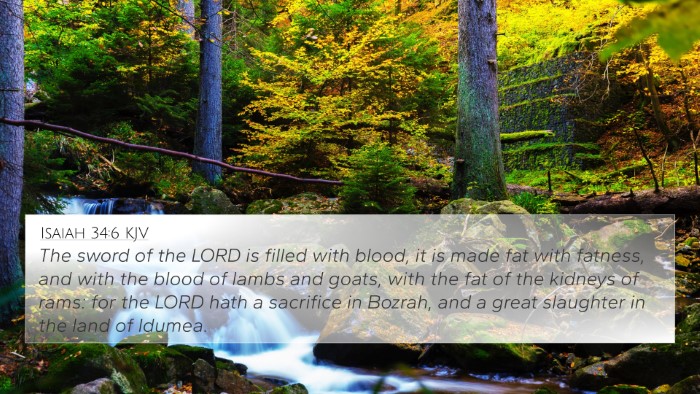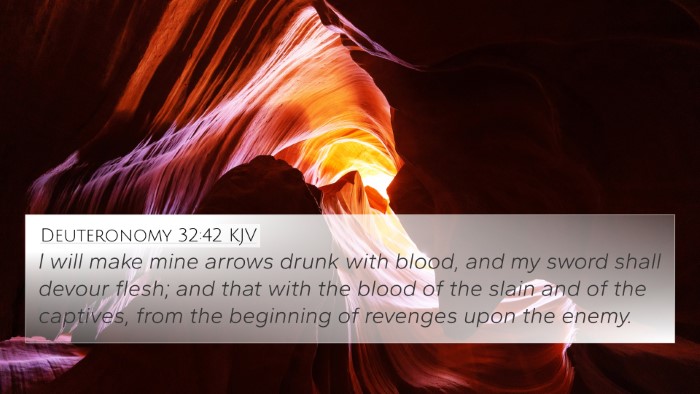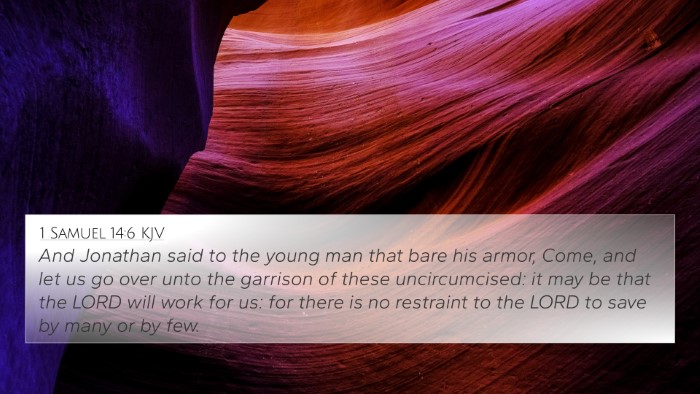Understanding 2 Samuel 1:22
The verse 2 Samuel 1:22 states, "From the blood of the slain, from the fat of the mighty, the bow of Jonathan did not turn back, and the sword of Saul returned not empty." This verse captures the deep sense of loss and mourning following the death of Saul and his son Jonathan. The insights from various public domain commentaries shed light on the themes of valor, loyalty, and the consequences of conflict.
Summary of Meaning
This verse reflects David's sorrow over the lamentable outcome of the battle, highlighting both the bravery of Jonathan and Saul, as well as the futility of war. The phrase "the bow of Jonathan did not turn back" emphasizes Jonathan's skill and prowess as a warrior, and the nature of their fight is underscored by the bloodshed and loss described, demonstrating the grave realities of conflict.
Insights from Commentaries
-
Matthew Henry: Henry notes that David mourns not only for Jonathan's death but also for Saul, illustrating the profound relationships that developed through shared struggles. David's lament is not merely a personal loss but reflects the sorrow of a nation.
-
Albert Barnes: Barnes emphasizes the statement of Jonathan's bow not returning empty as a metaphorical representation of Jonathan's effectiveness in battle, yet it also points to the tragic outcomes of battles fought. He links this to the emotional weight of those left behind, especially David, who cherished Jonathan.
-
Adam Clarke: Clarke provides context on the honorable traits shown in battle. He reflects on the historical implications of the text, illustrating how warfare shaped the destiny of nations, and Jonathan's heroic nature served as a pivotal point in the lineage of Israel's leadership.
Bible Cross-References
Understanding 2 Samuel 1:22 can be enriched through various cross-references that illuminate its themes. Below are several relevant verses that offer greater insight into the context and implications:
- 1 Samuel 18:1-4 - Highlights the strong bond of friendship between David and Jonathan.
- 2 Samuel 1:25-27 - David continues his lamentation, expressing the full weight of loss for both Jonathan and Saul.
- 1 Samuel 31:2-6 - The account of Saul’s death provides necessary background to the lament in 2 Samuel 1.
- Psalms 18:34 - Contains themes of strength and warfare that echo Jonathan's prowess in battle.
- Psalms 144:1 - Speaks to the notion of being trained for battle, akin to the exploits of both Jonathan and David.
- Ecclesiastes 3:8 - Reflects on the time for war and peace, underscoring the cycle of violence and loss.
- 2 Samuel 4:4 - Presents the fallout following Saul’s death, particularly focusing on Jonathan’s son Mephibosheth.
Connections Between Bible Verses
The lament for Saul and Jonathan connects deeply with David's future as king, showcasing the disruption caused by conflict and the theme of loyalty that persists throughout the Bible. Cross-referencing these verses enriches the thematic connections present in the narrative:
-
Inter-Biblical Dialogue: The connection between the Old Testament and the New Testament is seen in themes of sacrifice, friendship, and the effects of leadership which resonate throughout Scripture.
-
Bible Concordance Tools: Using resources such as a Bible concordance can help in identifying these connections effectively, providing a systematic approach to exploring parallels and meanings.
Thematic Bible Verse Connections
The themes in 2 Samuel 1:22 echo throughout both the Old and New Testaments, giving insights into the nature of relationships forged in adversity, as seen through Jonathan’s loyalty to David, and the tragic outcomes that often characterize human conflicts.
Conclusion
2 Samuel 1:22 serves as a poignant reminder of the complexities of human emotions in the face of war and loss. The verse, enriched through various commentaries and cross-references, opens a dialogue concerning valor, tragedy, and the interconnected tales found within the Scriptures. Engaging in a comparative Bible verse analysis can deepen understanding of these themes and enhance the spiritual journey of readers.
